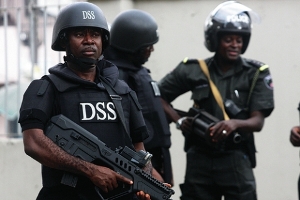Repositioning Nigeria’s secret service
Before September 13, 2018, the leadership of the Department of State Service (DSS) had been on what techies would refer to as customised mode. The operations of the DSS, in the most recent memory of many Nigerians, deviated from its original mandate. Established by a military decree after the National Security Office (NSO) was dissolved […]

Before September 13, 2018, the leadership of the Department of State Service (DSS) had been on what techies would refer to as customised mode.
The operations of the DSS, in the most recent memory of many Nigerians, deviated from its original mandate. Established by a military decree after the National Security Office (NSO) was dissolved in 1990 due to its notoriety, the DSS was expected to function differently, especially in a democracy. However, some of its leaders got too involved in matters outside its mandate and left Nigerians with the impression that the agency was a footstool of overzealous loyalty.
The agency became known for picking petty inter-agency rivalry wars within the security and defence community. There was acrimony and rivalry between and among other security agencies.
In fact, a fallout of such rivalry came into public glare when a lawmaker in the Seventh Senate questioned the legality of the Office of the National Security Adviser (ONSA) during its deliberation on the harmonised bill for the amendment of the Terrorism (Prevention) Act, 2011.
The senator was quoted to have said, “The office of the NSA does not exist in law. The National Assembly cannot make laws for the office.” He wanted the DSS to coordinate counterterrorism activities but submitted that the National Assembly could not dictate to the president on whose office should do that.
At a time, the DSS became an instrument of oppression and intimidation in the hands of powerful political allies.
There was a time the appointment of a director-general of the agency caused ripples, but it later died down because the person in question was seen as a trusted officer. However, there continued to be disquiet in some quarters as he was said to have belonged to the powers-that-be.
Even with the trust and confidence enjoyed by the said director-general, he was unable to draw the line between personal matters and issues of sensitive national service and development. Under his watch, the DSS became the most publicly visible since Nigeria returned to democracy in 1999. Then, there was nothing secret about the secret service as the agency assumed the role of the police.
In August 7, 2018, there was a siege in the National Assembly, where lawmakers and members of staff were prevented from gaining access to the complex. The man in the middle of it all said he took the action in national interest and involved principal officers of sister agencies. He also claimed that he acted on a higher authority to deploy his men.
But the then acting president said he was not aware of such action and subsequently fired the director-general.
Following that action, President Muhammadu Buhari appointed Yusuf Magaji Bichi as the new director-general of the DSS on September 14, 2018. In his first public statement, Bichi said his vision was to ensure a disciplined, professional and highly motivated DSS that would support the government in rebuilding the economy, stamping out insecurity and fighting corruption.
A pioneer staff of the agency, Bichi is vastly experienced in intelligence processing, analysis and administration. It can be said that barely six months on as the director-general of the DSS, his experience has come to bear and the agency’s modus operandi and public perception have improved significantly. Even those who initially kicked against his appointment on the basis of classical Nigerian sentiments – ethnicity, tribe religions, etc – have come to appreciate what the DSS has turned out to become.
The biggest integrity test of the secret service under Bichi was the just-concluded 2019 general elections. It is somewhat normal for an agency such as the DSS to be put under pressure to serve some interests during the elections. But unlike what obtained in other security outfits involved in the electoral process, the agency kept a low profile throughout the elections. However, low profile didn’t translate to inactivity as the agency went about its duties without the trademark showboating and excessiveness.
Bichi has also been charting a course for greater collaboration among the security and intelligence community. He understands and believes that in every sector, when relevant outfits pursue different agendas, the result is always counter-productive.
In matters of national security, inter-agency cooperation is even more critical. It is a well known fact that intelligence coordination is as vital to national security as intelligence gathering. In fact, failure of a country to adequately coordinate all its security agencies could portend greater danger than any internal or external security threat. Understanding this, the director-general has chosen cooperation rather than rivalry.
As one of the three agencies that replaced the NSO, the DSS was established to gather intelligence for the purpose of upholding and enforcing the criminal laws of the land. It wasn’t designed as a tool for intimidation and harassment as some of its past heads reconstructed it to become. Now, it has a leader who is gradually returning it to its original mandate.
Kayode, a strategic communication expert, wrote from Karu, Abuja.
